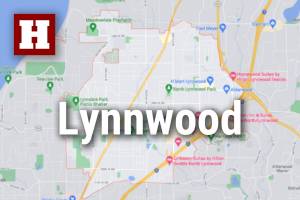Jill Johnston, author of ‘Lesbian Nation,’ dies at 81
Published 5:16 pm Saturday, September 25, 2010
Jill Johnston, a cultural critic, memoirist and provocateur whose best-known book, “Lesbian Nation,” emboldened women in the 1970s to identify themselves as lesbians and argued that gay women were crucial to the feminist movement, died Sept. 18 in Hartford, Conn. She was 81.
The cause was complications from a stroke, said her spouse, Ingrid Nyeboe.
Johnston gained prominence in the 1960s as a dance critic for The Village Voice who wrote knowledgeably about avant-garde choreographers and performers. As the decade wore on, her writing grew intensely personal and experimental, spurning the conventions of capitalization, periods and paragraphs in favor of “collage-like assemblages” of thoughts that even by ’60s standards were, she conceded, “a rather wild spectacle in those woolly times.” Her work caused so much debate that in the late ’60s, Andy Warhol and other underground art figures participated in a panel discussion about it called “The Disintegration of a Critic.”
She was, in fact, under tremendous personal strain at the time. She came out publicly in a 1971 Village Voice column titled “Lois Lane Is a Lesbian.” Cut off from her two children by her ex-husband, she was hospitalized twice with nervous breakdowns. Straight feminist leaders were wary of her, especially after a 1970 benefit for the women’s movement at a swanky home in the Hamptons when Johnston jumped topless into her hosts’ pool while Betty Friedan was speaking. (Friedan offered a hilarious account of the incident in her memoir, “Life So Far.”)
Johnston’s notoriety was cemented when she participated in a highly publicized town hall debate in New York City in 1971 that pitted feminist author Germaine Greer, the National Organization for Women’s New York president Jacqueline Ceballos, literary critic Diana Trilling and Johnston against novelist Norman Mailer, whose anti-feminism diatribe “The Prisoner of Sex” was causing an uproar.
From Johnston’s first moments at the lectern, her subversive intentions were clear. Clad in a colorfully patched denim jacket and jeans, she told the audience of New York intellectuals, “All women are lesbians except those who don’t know it yet.” When her remarks flowed, free-association style, beyond her 10-minute time limit, Mailer, as the moderator, called for an audience vote on whether she should be allowed to continue.
Then a female friend of Johnston’s jumped on stage, and the two women began hugging and kissing. They were joined by a third woman, who pulled Johnston to the floor for a rollicking love-in. “Come on, Jill, be a lady,” Mailer finally said. Johnston, who once wrote, “I think one should be serious in one’s purposes but not necessarily solemn,” eventually made her exit, having upstaged the macho writer with her guerrilla tactics. The whole spectacle was captured in a 1979 documentary by Chris Hegedus and D.A. Pennebaker called “Town Bloody Hall.”
“Jill made a wonderful performance art piece out of it,” feminist thinker and “Sexual Politics” author Kate Millett said of Johnston’s appearance in “Mailer: A Biography” by Mary V. Dearborn. “She wasn’t going to debate anything.”
With “Lesbian Nation,” published in 1973 by Simon and Schuster, Johnston established herself as a radical feminist theorist, proclaiming that lesbianism was not just a personal lifestyle but a political stance necessary for the overturn of patriarchy. The book became a manifesto for a lesbian separatist movement, spurring the creation through the 1970s of lesbian communities.
“Many feminists are now stranded between their personal needs and their political persuasions,” she wrote. “The lesbian is the woman who unites the personal and political in the struggle to free ourselves from the oppressive institution (of marriage) …. By this definition lesbians are in the vanguard of the resistance.”
Johnston was born in England on May 17, 1929, and grew up on Long Island in New York. After earning a bachelor’s degree from Tufts University in 1951, she studied dance at the University of North Carolina, Greensboro and began writing for the Dance Observer. In 1959 she was hired at the Village Voice, where her work appeared through the mid-1970s. She later wrote for other publications, including Art in America.
She never knew her father, Cyril Frederick Johnston. Her mother, Olive Margaret Crowe, told her that he had died when she was very young. But when Johnston was in college, she learned that he had abandoned them and had lived in England, where he was a successful bell maker. To her shock, she discovered that he died much later than she had been led to believe.
She told the story of her mother’s deception and its effect in a two-volume autobiography, “Mother Bound” (1983) and “Paper Daughter” (1985). She later researched her father’s life, writing of his role in the history of bell making in “England’s Child: the Carillon and the Casting of Big Bells” (2008).
“She always told me that the writing of that book was the purpose of her life,” Nyeboe said. She said the other book that Johnston remained most proud of was “Jasper Johns: Privileged Information” (1996), a psychobiography of the American painter who was a seminal influence on Pop Art.
Johnston’s six-year marriage to Richard Lanham ended in divorce in 1958. She met Nyeboe in 1980, and they were married in Denmark in 1993. In addition to her spouse, she is survived by a son, Richard Lanham of Sarasota, Fla.; a daughter, Winifred Lanham, of Tomkins Cove, N.Y.; four grandchildren; and two great-grandchildren.
In her later years, Johnson came to regard “Lesbian Nation” as an antique, having outgrown its in-your-face aesthetic. Not long ago in The New Yorker, she described herself this way: “I’m an R.L.F.W. — a recovering lesbian from the feminist wars.”




